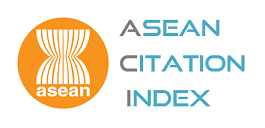TOTAL FLOAT MANAGEMENT TECHNIQUE UNDER THE FLOAT AND RESOURCE LOADING
Keywords:
delay responsibilities, enhanced total float management technique, total float and resource allocationAbstract
Schedule delays in construction projects are a common occurrence and have a significant impact on the overall project duration. Plentiful delay analysis techniques have been proposed and utilized to resolve these issues. The total float management method is widely accepted and considered the most fundamental approach as it effectively resolves four major delay issues and measures float consumption. However, current delay analysis techniques have often overlooked the allocation of float and resources, which can remarkably affect the determination of delay responsibilities for involved parties. This study aims to enhance the total float management approach by intensively incorporating float and resource loading considerations before delay analysis implementation. The research methodology includes an extensive literature review, identification of crucial issues related to schedule delays arising from the lack of resource and total float allocation, and the application of enhanced total float management under float and resource loading through a case study for test validation. The research findings provide transparent insights into delay liability considering both time delays and float consumption and emphasize the importance of float and resource allocation in the early stages of construction projects for a consensus before analyzing and assigning delay responsibilities. Future studies could focus on legalizing the procedural considerations of float ownership and resource allocation in contract agreements.











